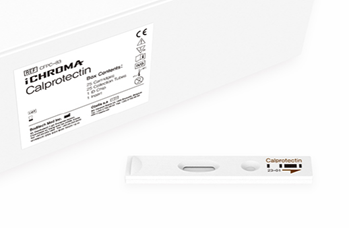| Detection Range | qualitative |
| Performance | LOD: 3 ng/mL |
| Sample Type | Stool |
| CV | <10% |
| Reaction Time | 12 minutes |
i-Chroma H.Plylori
- H. pylori is a common type of bacteria that usually infects the stomach. They may be present in more than half of all people in the world, according to the Mayo Clinic.
The “H” in the name is short for Helicobacter. “Helico” means spiral. The bacteria are spiral shaped. H. pylori normally infect the stomach during childhood. While infections with this strain of bacteria typically don’t cause symptoms, they can lead to diseases in some people, including peptic ulcers, and an inflammatory condition inside the stomach known as gastritis.
Infection by H. pylori has been implicated in the pathogenesis of gastro-duodenal diseases. Several guidelines on H. pylori infection from around the world indicate that eradication of H. pylori would result in a reduction of the incidence of gastro duodenal diseases, including gastric cancer, and would decrease new infections in future generations.



